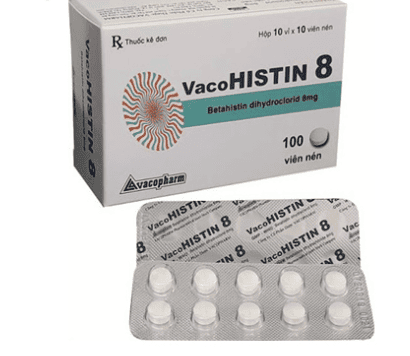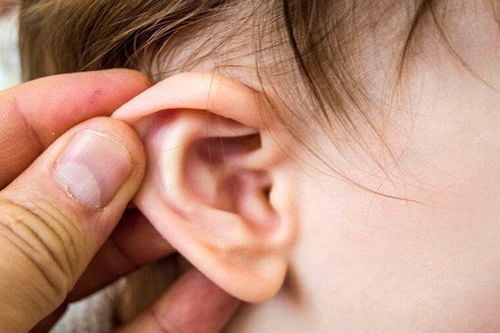This is an automatically translated article.
Hearing loss or deafness is a hearing loss related to a common problem caused by noise, aging, disease and genetics. People with hearing loss may find it difficult to converse with friends and family. This condition increases as you age. So, how to prevent hearing loss as you age? Read more articles below to understand more and take effective preventive measures.
1. Hearing loss is a common problem as you get older
1.1. What is hearing loss or hearing loss, deafness? Hearing loss or deafness, collectively known as hearing loss or hearing loss, is quite common as you get older (geriatric disease). Nearly half of people in the United States over the age of 65 have some degree of hearing loss.
Hearing loss is defined as one of 3 types:
Conductive (involving your outer or middle ear); Sensory nerve (involves your inner ear); Mixed (a combination of both). Aging and chronic exposure to loud noise both contribute to your hearing loss. Other factors, like too much earwax, can temporarily reduce the level of sound conduction in your ears.
However, you and your doctor or hearing specialist can take steps to improve what you hear.
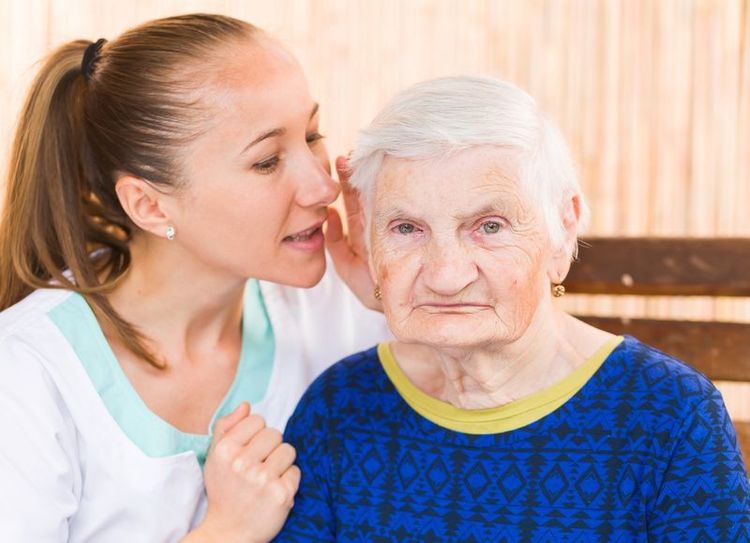
Tình trạng bị lãng tai hay bị điếc được gọi chung là mất thính giác
1.2. Symptoms of Hearing Loss Signs and symptoms of hearing loss may include:
Interruptions of voices and other sounds; Difficulty understanding words, especially against background noise or in crowds; Difficulty hearing consonants; Frequently asking others to speak slower, clearer, and louder; Need to increase the volume of the TV or radio; Leave the chat; Avoid social activities; Having trouble hearing over the phone; Difficulty following conversations when two or more people are talking; Often asks people to repeat what they are saying; Have hearing problems due to background noise; Think others seem to mumble; It is impossible to understand when women and children talk to you.
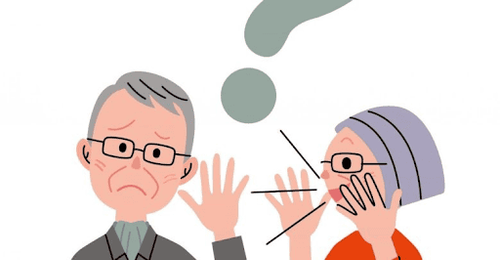
Khó theo dõi các cuộc trò chuyện khi hai hoặc nhiều người đang nói chuyện là dấu hiệu mất thính giác
1.3. How can hearing loss happen? Causes of hearing loss include:
Inner ear damage: Aging and exposure to loud noises can cause wear and tear on hairs or nerve cells in the cochlea that are responsible for sending sound signals. bar to the brain. When these hairs or nerve cells are damaged or missing, electrical signals are not transmitted efficiently and hearing loss occurs. Higher timbres may sound muffled for you. You may have trouble picking out words against background noise. Earwax accumulates gradually: Earwax can clog the ear canal and prevent the conduction of sound waves. Ear waxing can help restore your hearing. Ear infections and tumors or abnormal bone growth. In the outer or middle ear, any of these substances can cause hearing loss. Perforated eardrum (tympanic membrane perforation): Loud noises, sudden pressure changes, piercing the eardrum with objects, and infection can cause the eardrum to rupture and affect your hearing. Hearing loss comes in many forms. It can range from mild hearing loss, in which a person misses certain high-pitched sounds, such as the voices of women and children, to complete hearing loss.
There are two general types of hearing loss:
Sensorineural hearing loss occurs when there is damage to the inner ear or the auditory nerve. This type of hearing loss will usually be permanent. Sudden hearing loss or sudden deafness is rapid hearing loss. It can happen to one person at a time or over a period of up to 3 days. It should be considered a medical emergency. If you or someone you know has sudden sensorineural hearing loss, see your doctor right away. 1.4. Age-Related Hearing Loss Aging or age-related hearing loss will gradually appear as a person gets older. It seems to run in families and can occur due to changes in the inner ear and auditory nerve. Neck pads can make it difficult for a person to hear loud sounds or to fail to hear what others are saying.
Age-related hearing loss usually occurs in both ears, affecting them equally. This loss happens gradually, so people with aging may not realize they have lost some of their hearing.
Tinnitus is also common in older people. It is often described as tinnitus, but it can also sound like a roar, click, hiss, or humming. Tinnitus is sometimes the first sign of hearing loss in older adults. Tinnitus can accompany any type of hearing loss and can be a sign of other health problems, such as high blood pressure, allergies, or a side effect of medication.
Tinnitus is a symptom and not a disease. Something as simple as a piece of earwax blocking the ear canal can cause tinnitus, but it can also be the result of a number of health conditions.
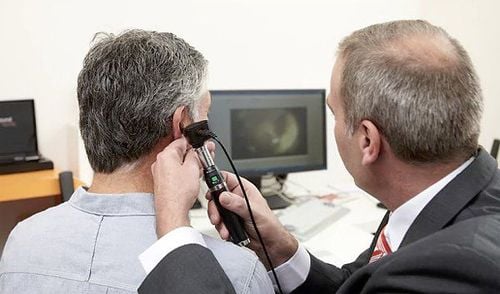
Suy giảm thính lực do tuổi tác thường xảy ra ở cả hai tai, ảnh hưởng đến chúng như nhau.
Let people know you have a hearing problem. Ask people to face you and speak more slowly and clearly. Pay attention to what is being said and to facial expressions or gestures. Let the speaker know if you don't understand what they're saying. Ask the person who is saying the words to repeat a sentence and try again. Find a good position to listen. Place yourself between the speaker and the noise sources and find quieter places to talk. The most important thing you can do if you think you have a hearing problem is to seek professional advice. Your doctor can diagnose and treat your hearing problems.
2.2. Hearing aids as you age Your doctor or specialist may recommend that you buy a hearing aid. Hearing aids are battery-powered electronic devices that make sounds louder. There are many types of hearing aids. Before buying a hearing aid, find out if your health insurance will cover the cost. Also, ask if you can get a trial period so you can make sure the device is right for you. An audiologist or hearing aid specialist will teach you how to use your hearing aid.
Over-the-counter (OTC) hearing aids are a category of newly regulated hearing aids that adults with mild to moderate hearing loss can purchase without a prescription. OTC hearing aids will make some sounds louder to help people with hearing loss be able to hear, communicate, and participate more fully in daily activities.
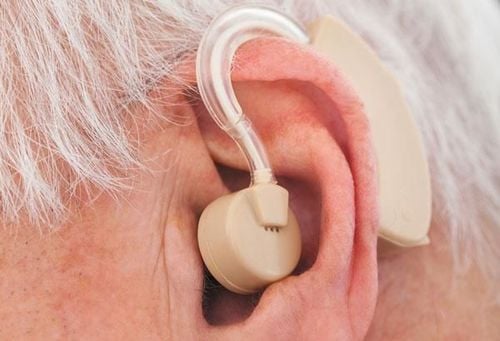
Sử dụng thiết bị trợ giúp mất thính giác khi bạn già đi
Avoid too much noise : Sound from motorcycles, concert speakers, power tools such as saws and drills, headphones,... are all loud enough to damage your hearing. If it's too loud in a movie theater, restaurant, or any other place you frequent, ask the manager to turn the volume down. You should bring earplugs. Wear hearing protection: If you know you'll be exposed to loud sounds for more than a few minutes, consider wearing protection, such as earplugs or earmuffs. They must fit snugly in both ears to block out sound. You can also wear earplugs and earplugs together for better protection. Don't smoke: Research shows that smoking can make you lose your hearing. So, if you smoke, quit now, and if you are not a smoker, avoid breathing secondhand smoke. Proper earwax removal: Earwax that accumulates in the ear can muffle sound. Do not use cotton swabs to clean them as they can push the wax deeper. Instead, use an at-home earwax kit to help soften the wax and gently rinse it off. If it is compressed in the ear, the doctor may have to remove it. Drug testing: About 200 drugs can damage your hearing, including some antibiotics and anticancer drugs. Even high doses of aspirin can harm your ears. If you take prescription medication, check with your doctor to make sure it's not affecting you. If you must take a medication that could harm your ear, make sure your doctor checks your hearing and balance before and during treatment. Check your hearing: Make an appointment for a hearing test if you have a loved one who is deaf, has difficulty hearing conversations, is surrounded by loud noises, often hears tinnitus. In the case of hearing problems that cannot be distinguished on their own, see your doctor for an accurate diagnosis. It could be a symptom of other serious medical problems. Early treatment will help you to be able to hear and live normally.
Please dial HOTLINE for more information or register for an appointment HERE. Download MyVinmec app to make appointments faster and to manage your bookings easily.
References: nia.nih.gov, hopkinsmedicine.org, webmd.com







